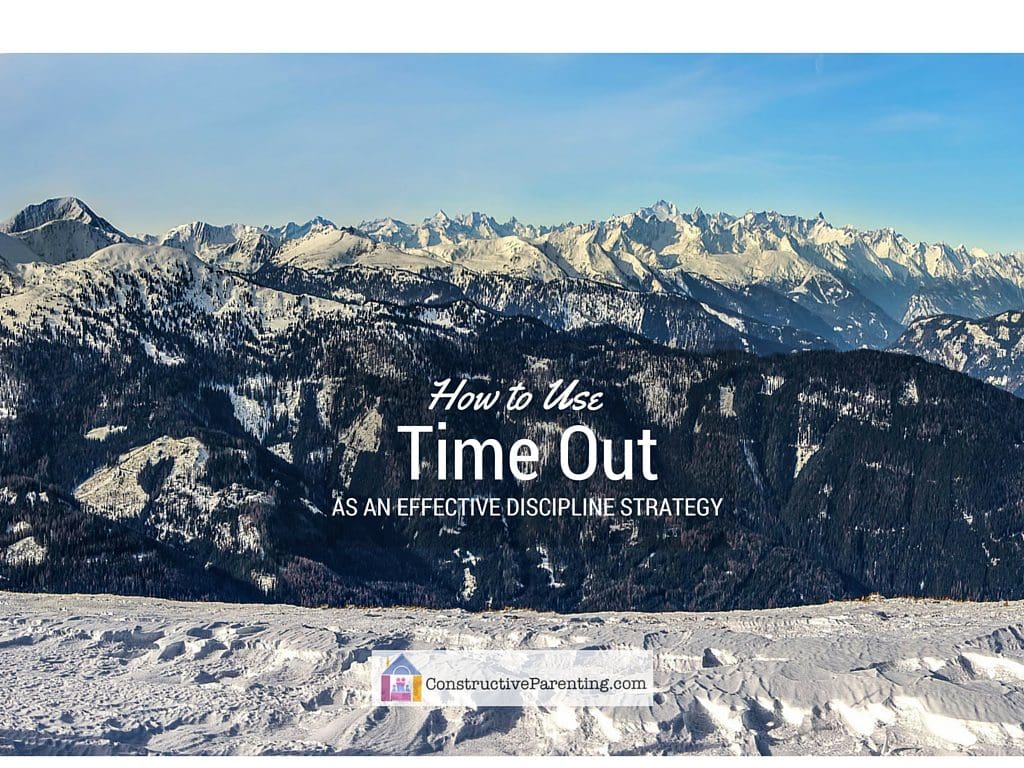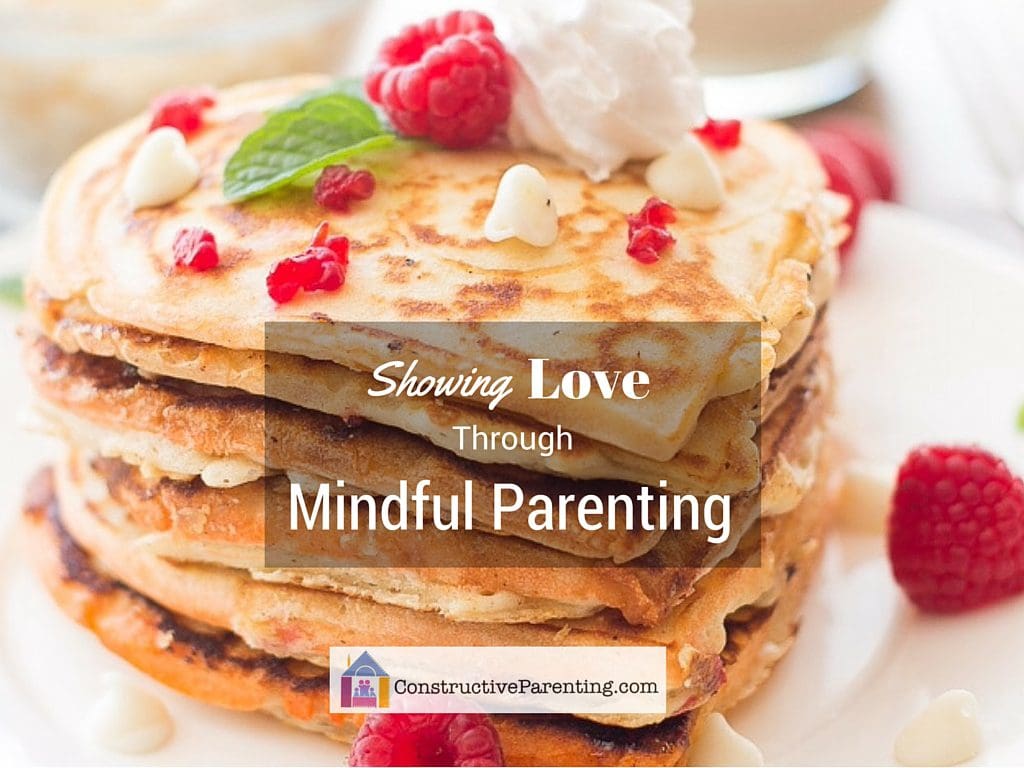Parenting Tips For Giving Consequences That Work

Do you ever wish that your children would just behave? And when they don’t, you find yourself, doling out harsher and harsher consequences—thinking that if you could just find the right “pain point” they would eventually get the message that they need to change their behavior. I have to admit—we have all fallen into that trap. But it turns out that influencing behavior with harsh punishments only reinforces obedience– it doesn’t teach the values behind good behavior. In other words when you teach children to do something, right now, “because I said so” you miss the opportunity to teach them how to stop and consider for themselves the difference between right and wrong. On a side note if you are curious about whether spanking works this post is for you.
Knowing how to give effective consequences is a skill that many parents struggle with. Parents sense that if they could only figure this out, life would be more peaceful in the home. The following are parenting tips for what to do when your child misbehaves so that you can provide meaningful consequences that are in line with your values. These tips will help your child to stop and think before they push your limits again.
First Find Your Calm
When we are tired, hungry, or stressed it is easy to overreact. This is when we run the greatest risk of shouting out empty threats rather than well thought-out consequences. It is also when we struggle the most to ignore the small stuff. When your child makes a poor choice, pause and take a few deep breaths in and out until you feel calm and steady. See if you can creatively handle the situation using humor or giving choices. Even if a consequence is necessary, once you’re calm, you are in a great position to teach your child what you want them to learn.
Consequences Should Immediately Follow the Behavior
If your child is misbehaving, come up with a consequence that has an immediate impact. If it’s Monday and you tell your daughter that she will not be able to go her friend’s birthday party on Saturday, the consequence will not have the same impact as telling her she has immediately lost a privilege. Somehow kids instinctively know that parents are likely to forget or let them earn back what they have lost if the consequence is too far away. If you are feeling stymied by which consequence to provide in the moment tell your child that you are disappointed in her choice and let her know you will decide the consequence as soon as you have calmed down. Remember that pairing the timing of a consequence closely with the behavior has the most powerful effect.
Keep Consequences Related to the Offending Behavior
Parents tell me all the time that one of the hardest parts of coming up with a consequence is thinking of one that will have the biggest impact. The key is to pick something that is directly related to what your child did wrong. This takes a little practice but once you get good at it you will see a dramatic increase in positive behavior. The most effective way to do this is to allow a natural consequence to play out without rescuing your child. For instance, if your child is working on organization and you notice they forgot their homework, the natural consequence would be to allow them to get a zero. This provides a better life lesson than driving the homework to school and then giving your child an unrelated consequence like no TV. When there is no obvious natural consequence for a behavior do your best to at least keep the consequence related. If your child is moving slowly at bath time let him know he will have less time for reading books before bedtime, and if your daughter is too full for vegetables then make sure she understands this means she is too full for dessert.
Let Your Child Choose Whether to Follow Directions or Receive the Consequence
After you have stated your expectation calmly and clearly let your child know what the consequence will be if he chooses not to listen. Then let him decide the next move. If he continues to misbehave put responsibility on him by saying “I see you have chosen (the consequence)” and then follow through. Remember that doing this does not make you a mean parent. Your child had a choice and you are simply being consistent. If he starts to back track and insist on another chance, don’t back down. Instead, you can validate how hard having a consequence is and let him know that the next time, he will have a chance to make a different choice. Let your child know you are confident he can do better in the future.
Use Your Attention as a Consequence
Sometimes children make poor choices specifically to get your attention. For most children, this looks like whiny or manipulative behavior that sends the message, “if you don’t give me my way, I am going to make your life hard.” In those cases, make sure your child is safe and then try actively ignoring him or her. Make a point to stop making eye contact, turn your body away and become silent. Losing your attention becomes your child’s consequence. When you see your child doing the right thing again immediately give him or her positive attention. Also remember to teach your child how you would like for them to ask for attention and when they ask appropriately make a point to stop what you are doing and respond.
Try Teaching Your Child to Understand Other People’s Point of View
It is normal for children to only be able to see things from their own perspective. As parents, our goal is to help them also understand what we want and why it’s important. If your child does not want to follow directions and the situation allows for some flexibility, try teaching them to compromise. The great thing is that in teaching your kids to think of a compromise, you are teaching them to look at a problem from someone else’s perspective. This helps eliminate the battle of parent vs. child.
So how do you teach a child to come up with a solution to a disagreement? First encourage her to take a breath and try to relax. If the idea she comes up with seems ridiculous remind her she is only thinking of what she wants. Remind her about what you want to happen and encourage her to try again with an idea that would work for both of you. We want our children to learn that if they can share their perspective calmly and kindly, we are sometimes willing to help them come up with a compromise. Of course, they need to know that sometimes the answer may still just be “no”.
If coming up with consequences is a struggle for you or your partner and you would like more support, I would be happy to help. Check out my other blog posts for lots of helpful parenting tips or if you live in NC and you would like to work with me you can contact me here.












I like your parenting tips. I need to get a coach. I don’t know how to parent my kid.
I want to thank you to help me with those helpful parenting tips. as a new parent. I couldn’t help but see my baby cry. your tips have helped me take a good care of my kid.
It’s really helpful to parents and nice tips you shared.